
Kasinadhuni Viswanath, popularly known as "Kalatapasvi", was an Indian film director, screenwriter, lyricist and actor who predominantly worked in Telugu cinema. One of the greatest auteurs of Indian cinema, he received international recognition for his works, and is known for blending parallel cinema with mainstream cinema. He was honuored with the "Prize of the Public" at the "Besançon Film Festival of France" in 1981. In 1992, he received the Andhra Pradesh state Raghupathi Venkaiah Award, and the civilian honour Padma Shri for his contribution to the field of arts. In 2017, he was conferred with the Dadasaheb Phalke Award, the highest award in Indian cinema.

Boro, also called Bodo, is an ethnolinguistic group native to the state of Assam in India. They are a part of the greater Bodo-Kachari family of ethnolinguistic groups and are spread across northeastern India. They are concentrated mainly in the Bodoland Territorial Region of Assam, though Boros inhabit all other districts of Assam and Meghalaya.
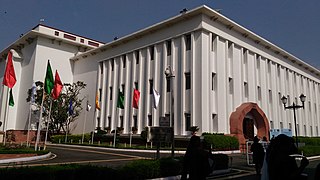
The National Film Awards is the most prominent film award ceremony in India. Established in 1954, it has been administered, along with the International Film Festival of India and the Indian Panorama, by the Indian government's Directorate of Film Festivals since 1973.

Dasari Narayana Rao was an Indian film director, producer, screenwriter, actor, lyricist, and politician known for his works predominantly in Telugu cinema, in addition to Hindi cinema. He has directed more than 150 feature films in a variety of genres. He holds the Limca World Record for directing the most number of films in the world. For some reason he is known by the moniker Darsaka Ratna. His works emphasize social injustice, corruption and gender discrimination. Narayana Rao has received two National Film Awards, nine state Nandi Awards including the Raghupathi Venkaiah Award, and four Filmfare Awards South including the Lifetime Achievement. During his career he had also acted in Telugu, Tamil, and Kannada films.
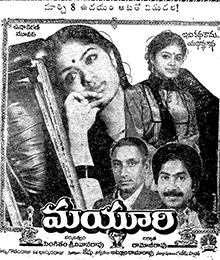
Mayuri (transl. Peacock) is a 1985 Indian Telugu-language biographical dance film directed by Singeetam Srinivasa Rao and produced by Ramoji Rao. Based on the life of Sudha Chandran, the film stars her in the title role while P. L. Narayana, Nirmalamma, Y. Vijaya, Potti Prasad, K. K. Sharma, S. R. Raju and Suthi Veerabhadra Rao played supporting roles.

Gujarati cinema, also known as Dhollywood, is the segment of Indian cinema, dedicated to the production of motion pictures in the Gujarati language widely spoken in the state of Gujarat. It is based in Ahmedabad. It is one of the major regional and vernacular film industries of the cinema of India, having produced more than one thousand films since its inception.
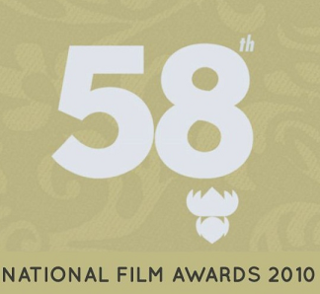
The 58th National Film Awards, presented by Directorate of Film Festivals, the organisation set up by Ministry of Information and Broadcasting, India to felicitate the best of Indian Cinema for the year 2010.
The 29th National Film Awards, presented by Directorate of Film Festivals, the organisation set up by Ministry of Information and Broadcasting, India to felicitate the best of Indian Cinema released in the year 1981. Ceremony took place in April 1982.
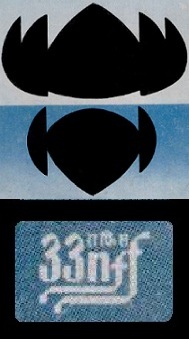
The 33rd National Film Awards, presented by Directorate of Film Festivals, the organisation set up by Ministry of Information and Broadcasting, India to felicitate the best of Indian Cinema released in the year 1985. Ceremony took place in June 1986.
The 34th National Film Awards, presented by Directorate of Film Festivals, the organisation set up by Ministry of Information and Broadcasting, India to felicitate the best of Indian Cinema released in the year 1986. Ceremony took place in September 1987.
The 43rd National Film Awards, presented by Directorate of Film Festivals, the organisation set up by Ministry of Information and Broadcasting, India to felicitate the best of Indian Cinema released in the year 1995. Ceremony took place on 6 August 1996 and awards were given by then President of India, Shankar Dayal Sharma.

The 59th National Film Awards, presented by the Directorate of Film Festivals, honoured the best of Indian cinema for 2011 and took place on 3 May 2012 at Vigyan Bhavan, New Delhi. Awards were presented in 38 categories in the Feature Films section, 20 categories in the Non-Feature Films section and two categories for the Best Writing on Cinema section; 41 jury members chose the winners from 392 entries. The ceremony was hosted by actors Vinay Pathak and Saumya Tandon. Awards were presented by the Vice-President of India, Mohammad Hamid Ansari. The ceremony was broadcast live on three television channels, eleven All India Radio stations, and webcast live.
The 51st National Film Awards, presented by Directorate of Film Festivals, the organisation set up by Ministry of Information and Broadcasting, India to felicitate the best of Indian Cinema released in the year 2003.
The National Film Awards are presented every year by Directorate of Film Festivals, the organization set up by Ministry of Information and Broadcasting, India, to felicitate the best of Indian Cinema for the year. Throughout the year various awards have been discontinued and given intermittently. Following is the list of discontinued and intermittent National Film Awards. The awards, instituted 1953, on the 40th anniversary of Indian Cinema, are given for feature films, non-feature films and best writing on cinema, and were once officially known as the State Awards for Films. In addition to the regular National Film Awards, several discontinued and Intermittent National Film Awards have been presented throughout the years.
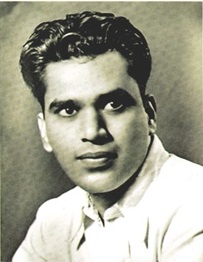
Raja Thakur (1923–1975) was an Indian film director predominantly working in the Marathi film industry. He is best known for his films Me Tulas Tujhya Angani (1955), Rangalya Ratree Ashya (1962), Ektee (1968), Mumbaicha Jawai (1970), Gharkul (1971) and Jawai Vikat Ghene Aahe (1972); for which he won National and State-level awards.
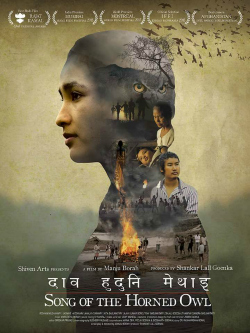
Dau Huduni Methai is a 2015 Bodo language drama film directed by Manju Borah; based on the Assamese novel Dao Hudur Gaan written by Rashmirekha Bora and adapted as screenplay by the director herself. It was produced by Shankar Lall Goenka and stars Reshma Mushahary, Ahalya Daimary, and Nita Basumatary in the lead roles. The film was premiered at Montreal World Film Festival on 1 and 2 September 2015.
Enaini Panjari is a 1995 Indian Bodo political film directed by Khanindra Bodosa and starred by Jayanta Narzary, Ashok, Kabita, Maya and Reshma Mushahary in the lead roles. It was released in 1995. The film was produced by Bwirathi Production Limited.
Jwlwi - The Seed is a 2019 Bodo-language Indian film directed by Rajni Basumatary. Set in Assam's insurgency ridden 90s, Jwlwi- The Seed is "a story of hope lost and found through resolute perseverance even in the face of seemingly insurmountable odds."
Hagramayao Jinahari is a 1995 Indian Bodo-language drama film directed by Jwngdao Bodosa. The film starred Tikendrajit Narzary and Onjali Basumatary. The film was screened at the India International Centre, Delhi in the 1990s. This film was notably the first Bodo-language film to be screened at the Indian Panorama section of the International Film Festival of India.
Gorai Phakhri, also known as Wild Swans, is a 2023 Indian Boro-language drama film written and directed by Rajni Basumatary and produced by Jani Viswanath. The film has an all-female cast. It stars Helina Daimary, Sangeena Brahma, Mithinga Narzary and Anjali Daimari. The film premiered at the Vancouver International Film Festival 2023 on 29 September 2023.











